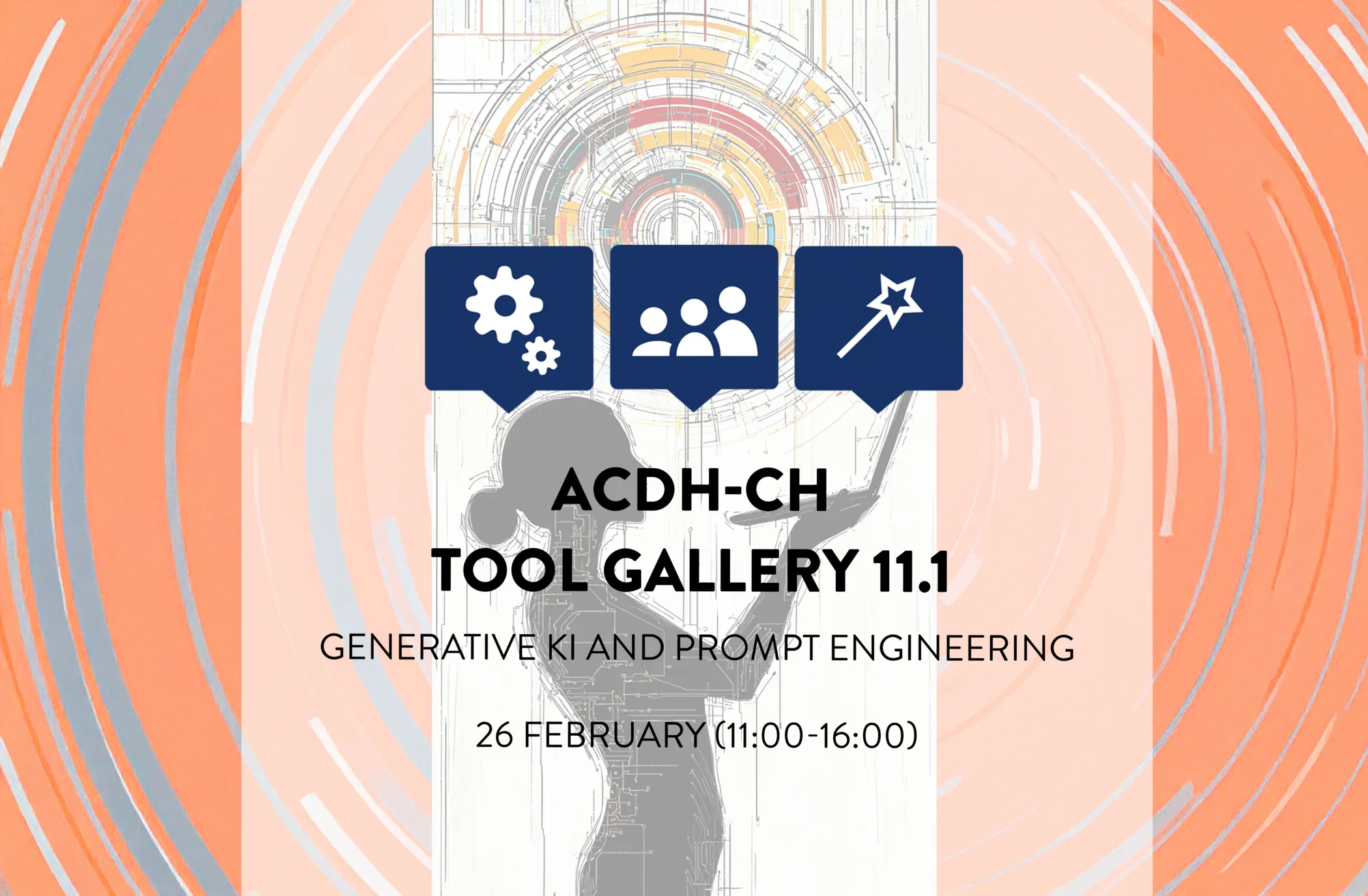
ACDH-CH Tool Gallery 11.1
ACDH-CH Tool Gallery 11.1: Generative AI and Prompt Engineering
When: Wednesday, February 26th, 2025; 11:00 - 16:00
Where: Seminarraum 1, Arkadenhof
Austrian Academy of Sciences, Bäckerstraße 13, 1010 Vienna
Registration: Registrations will open closer to the event.
This workshop offers a comprehensive introduction to the world of generative artificial intelligence (AI) and Large Language Models (LLM), with a special focus on prompt engineering. In an era where AI technologies are increasingly gaining importance, this workshop aims to equip participants with the necessary knowledge and skills to effectively utilize and optimize these technologies.
The event pursues three main objectives:
- Imparting a fundamental understanding of generative AI and LLM, including their technical foundations and application possibilities.
- Introduction to the core concepts of prompt engineering.
- Learning strategies and best practices for creating effective prompts that optimize the performance of LLM.
In terms of content, the workshop covers a broad spectrum, including:
- Principles of prompt engineering, illustrated through practical examples
- Advanced concepts such as Chain of Thought, Zero and Few Shot Prompting
- Techniques for structuring prompts, including templates and custom instructions
- Application-oriented examples, such as planning workshops, simulating panel discussions, and creating course outlines
Methodologically, the workshop combines lectures with practical hands-on exercises, followed by discussions in plenary. This approach allows participants to directly apply theoretical knowledge into practice and benefit from the experiences of the group.
This workshop is aimed at professionals, researchers, and interested individuals who wish to deepen their understanding of generative AI and expand their skills in prompt engineering. Participants will be enabled to more efficiently harness the potential of LLM and develop innovative solutions for complex tasks.
Please bring your own laptop.
Presenters:
Christian Steiner
Christian Steiner has a master’s degree in Translation (German/English/Bosnian/Croatian/Serbian) and a master’s degree in Digital Humanities. Since 2012 he has been working as a researcher at the Department of Digital Humanities (formerly: Center for Information Modeling (ZIM)) at the University of Graz in the area of data modeling and data processing as well as application development in various DH projects. The focus of his work is on semantic web technologies, linked data and web programming.
In addition to his teaching activities in these areas, his dissertation project deals with linked data and the potential of Wikidata as a hub between the life sciences and the humanities. Together with Christopher Pollin he founded the company Digital Humanities Craft in 2022.
Christopher Pollin
Christopher Pollin holds a master’s degree in history and a joint master’s degree in digital cultural heritage. He is currently a PhD student in Digital Humanities. Since 2016 he has been working in various positions at the Department of Digital Humanities (formerly: Center for Information Modeling (ZIM)) at the University of Graz. His work includes technical development and data modeling in various projects such as Stefan Zweig digital , Open Access Database Adjective-Adverb Interfaces in Romance or Digital Edition Publishing Cooperative for Historical Accounts. His main areas of work are Semantic Web, information visualization, digital edition, resource discovery and web programming.
In addition to his teaching activities in these areas, his dissertation project deals with ontology-based resource discovery for historical information using the example of historical financial documents. Together with Christian Steiner, he is one of the co-founders of Digital Humanities Craft .
ACDH-CH website